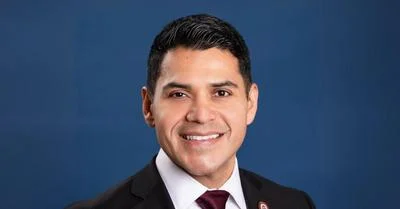Daniel Derksen Associate Vice President at Arizona Center for Rural Health | Official website
Daniel Derksen Associate Vice President at Arizona Center for Rural Health | Official website
Roughly 20% of expecting and new mothers in Arizona receive inadequate prenatal care, according to a report from the March of Dimes. This is higher than the national rate of nearly 15%. The report highlights that the overall health of mothers and infants in the U.S. is declining, with over a third of Americans living in areas known as maternity care deserts.
In response, Arizona's Medicaid agency, Arizona Health Care Cost Containment System (AHCCCS), allocated $2.5 million to four rural health centers for on-call maternity care services in August 2024. This funding comes from Senate Bill 1720, which provides $7.5 million over three years for OB-GYN providers in underserved communities.
The Mariposa Community Health Center in Nogales received more than 80% of this year's funds. Eladio Pereira, the center’s chief medical officer, cited staffing as a significant challenge: “Staffing is a challenge, to be able to recruit both nurses and physicians to the area.”
A shortage of obstetricians and gynecologists is anticipated nationwide by 2050, according to the American College of Obstetricians and Gynecologists. Pereira stated that AHCCCS funding will aid recruitment efforts and support new programs focused on maternal mental health during and after pregnancy: “We know that mental health issues play a role in negative outcomes … we’re putting a lot of emphasis on screening for depression, screening for domestic violence and all those issues that can create harm in the postnatal period.”
The Centers for Disease Control and Prevention reports that over 80% of pregnancy-related deaths are preventable, with income and access barriers being major factors.
Rachael Salley from AHCCCS emphasized the importance of addressing mental health: “We pay a lot of attention to some physical causes... but we know mental health is actually the number one underlying cause... focusing on these efforts will also make a huge role in rural areas and beyond.”
Pereira expressed optimism about increasing awareness: “Taking care of pregnant women is a privilege... it’s really important that we work hard to minimize any negative outcome... ready access to healthcare... manage any complications that come as a result of pregnancy.”
This article was originally published by Cronkite News.






 Alerts Sign-up
Alerts Sign-up